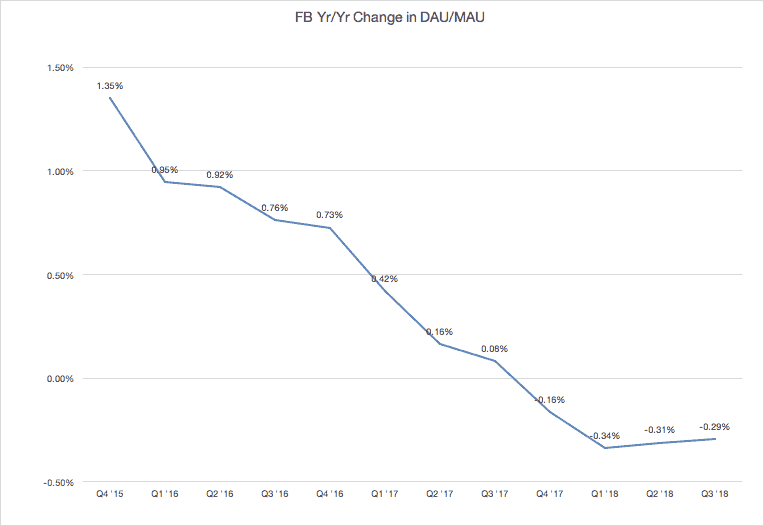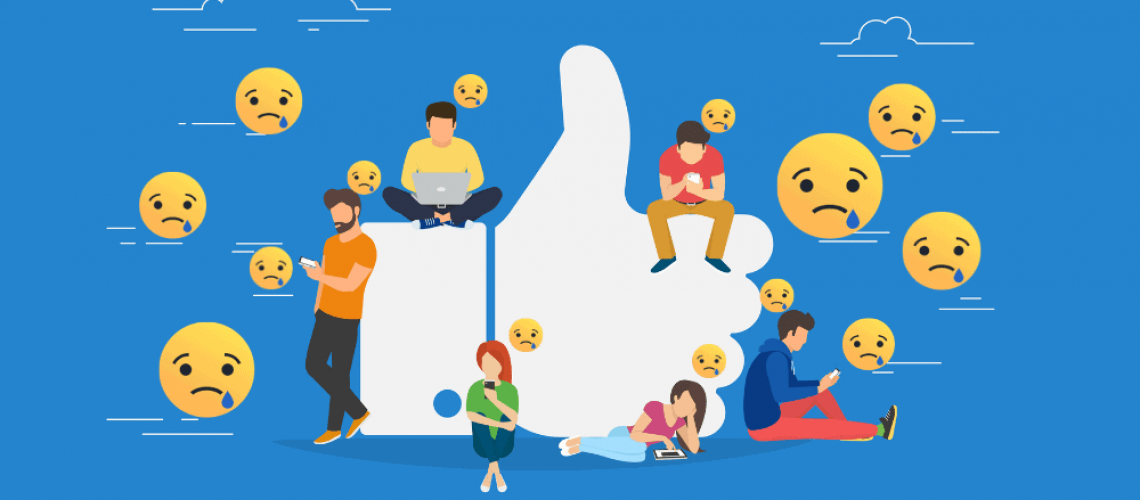Dead is a relative term in this case. Myspace still exists, but in every way you measure something, it would be considered dead. Facebook is far from dead and may continue to exist as a company for many, many more years. However, the early indication is that it’s dying, users are bolting from the platform.
Social media platforms come and go so why is the death of Facebook such a big deal? Therein lies the actual problem. Facebook dying and social media musical chairs are indicators of a much larger problem. To understand this problem let’s examine our patient (Facebook) and look for symptoms.

Why Should Facebook Die
Using Facebook Makes You Depressed
When I was writing this I wanted to provide clear documentation of the problems. What was challenging, in this case, is that the mountain of evidence is so negative and so definitive that there was no perfect source. Using Facebook (and Instagram) will make you feel worse. Even when I tried the opposite approach and began searching for positives in Facebook I found none!
However, here are some articles that could prove the point.
- https://hbr.org/2017/04/a-new-more-rigorous-study-confirms-the-more-you-use-facebook-the-worse-you-feel
- https://www.sciencedaily.com/releases/2018/11/181108164316.htm
It’s Fake News
With all the research on Facebook and how it causes the users to be more depressed, you’d think that’d be enough. To add to the big bucket of reasons to quit Facebook is the inauthentic experience. What they created to connect and bring people together is now being used to spread lies. You might think I’m talking about Fake News, which is a real thing, but I’m actually talking about the interactions. They aren’t real. You see only the best (or the worst) of someone’s life on Facebook. This is the same reason why depression is even higher on Instagram (because you only see the good on that platform).
Awful Experience
Finally, from a technical standpoint, the user experience is awful. Even in using Facebook while I was writing this post, I had loading issues, I couldn’t find the friends I actually wanted to see. What I found most interesting is that there are friends I’d actually like to keep up with but I guess I didn’t like enough of their posts for Facebook to think I need to see their updates.
Take that in for a second. I want to know how some friends are doing, but I’m not calling them, I’m hunting them down on Facebook to read what they are up to. This benefits no one and robs both of us of some positive interaction (unless of course, you’re thinking about a negative interaction with an Ex, then maybe it’s a good thing you didn’t interact on Facebook or in real life IRL).
The Real Reason Facebook Is Dying

As the generations change, so do their habits, likes, and dislikes. While aging generations are definitely attributing to the demise of Facebook, it’s the world view that is actually causing the younger generation to not engage with Facebook. Particularly Millennials and younger (and some Xellenials) view online social interactions as portable and disposable.
Think about the generations. The largest group of users of Facebook is the “boomers.” This group grew up without screens and used rotary phones to talk to one another. They understand relationships. While their interactions on Facebook are still somewhat toxic, Facebook offers a close faux friend experience.
Generation X is on the fence. Video games and the proliferation of TVs damaged the potential for really deep meaningful relationships. However, they are more adept at relationships than the next generation.
Finally, we have the Millenials. They grew up with little screens, no voice mail, no home number, and no “permanent” phone number. For most even technology that would have been kept for years, is disposable.
This is a good thing and in a sense that it allows them to move on from a destructive behavior. However, moving from Facebook to Snapchat doesn’t cure the disease, in some ways it makes it worse. In fact, when asked they will point out to you that the problem with most apps, Snapchat to tinder, is that it’s hard to tell when people are real.
Portability
Portability is a great thing. Ultimately, however, we’ve replaced friends for “followers.” Although they aren’t followers in the same sense of leadership followers, nor are these people really “following” you anywhere, they are lurkers. Lurkers are the less creepy version of stalkers.
When you don’t have any real friends, there are no real relationships and all you’re left with are lurkers. I know there are exceptions to this. I know when I write this there will be 1 reader that found their mate on Facebook by becoming “friends.” However, the research is clear, you don’t have real friends on Facebook, you don’t have real interactions and you’re actually making things worse. When followers and friends are simply data points, there is no real reason to keep you coming back.
This is the reason Facebook is dying and the reason you have no problem uninstalling the app on your phone. Simply communicating with your Mom isn’t enough for you to engage with Facebook. Relationships are hard work, and if your relationships are online it’s very easy to disconnect and move on.
Disposability
Instead of conversations, we now have shouting matches. This used to be the criticism of Twitter. Everyone is at the cocktail party with bullhorns. Every engagement on Facebook devolves into you talking at people. Our conversations are replaced with bragging or lamentations. Every day people wake up go to Facebook for their hit of dopamine simply to yell at the lurkers to see who responds, to hope for that small interaction.
When that interaction doesn’t happen for a long enough time, it’s time to look for another source. Since there are no real relationships there (except the actual IRL ones), you move on.
Each new social platform offers that initial rush of interaction. When you arrive at a new platform you’re inundated with interaction. Science tells us that you’re actually getting hits of dopamine, a chemical in your body that makes you feel happier. However, your body doesn’t realize that these are false positives. You feel good for a moment, but set yourself up for a crash.
Why Does The Death Of Facebook Matter?
Facebook’s slow death is just one piece of evidence of a much larger crime. A crime against God and relationships. What better proof than the fact Millennials are not getting married. The research doesn’t suggest it’s because they are more engaged in casual physical relationships. It also seems to have nothing to do with their dysfunctional parents. No, it’s because they are engaging in casual relationships period.
When you look at the social media landscape you see things shifting. You see the generational difference. However, we all have this one thing in common, we’re addicted to our small screens and usually addicted to social media. We’ve replaced these little boxes for real relationships. This has happened before. When the TV was introduced families exchanged entertainment boxes for familial relationships.
There is one person that has seen this all before. When Moses goes up the mountain to get the 10 commandments, the people wanted something to worship. They wanted to replace a relationship with an idol.
God wired us to be in a relationship and we continually look for things that are outside of Him to fulfill this wiring.
Facebook dying and the rise of these other platforms, each with more facades than the previous iteration is only the evidence of the death of real relationships. Relationships are a lot of work, however, they truly are the only thing that matters. I have to remind myself of this too. I’m not preaching to you, but rather writing to myself.
The Solution
First and foremost develop a relationship with God. Christianity is the only religion that has a God that is alive and wants to have a relationship with us. All my life I had knowledge of Jesus, I tried to disprove the validity of the Bible when I was in college and found that it’s more historically verified than the history books we were being taught from at Georgia Tech. However, in a marriage class at a church, I found that God is in the relationships. The first and most important one is the relationship with Him. If you don’t have this or want to know more, contact me (I’d be delighted to talk with you) or reach out to your nearest Christian!.
The second part is to get into friendships. Church offers a great way to do this, but Christian or not, you need good friends to do this life. The research is clear, social media is anything but and it’s killing you. As we watch facebook decline we can’t rejoice because in its place are a thousand other “networks” each with increasingly depressing statistics. What we can do is “love one another” which opens the door to new friendships.
Who Wants To Be Friends?
Comment below, but if you’re in the Atlanta area be willing to meet up for coffee or lunch. If you’re outside the Atlanta area, be willing to have open and honest communication, like old school pen pals.




